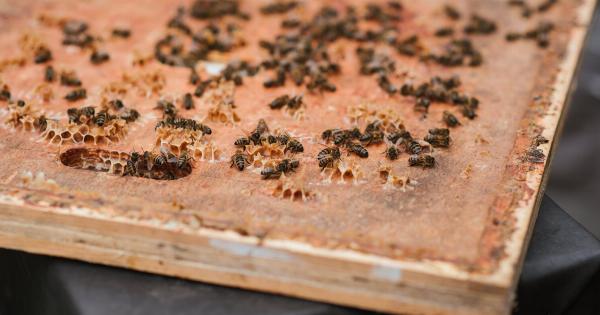During pregnancy, it is essential to eat a balanced and nutritious diet to ensure the health and wellbeing of both the mother and the baby.
Adequate intake of vitamins and minerals is crucial to support the growth and development of the fetus and prevent complications during pregnancy. Here are the essential vitamins to take during pregnancy:.
Vitamin A
Vitamin A is important for the development of the baby’s eyes, skin, immune system, and many other organs. However, excessive intake of vitamin A can be harmful to the baby, causing birth defects.
Therefore, pregnant women should only take the recommended amount of vitamin A, which is 770 micrograms per day for women aged 19 and above. Good food sources of vitamin A include carrots, sweet potatoes, spinach, kale, and liver.
Vitamin B6
Vitamin B6 is essential for the development of the baby’s brain and nervous system and helps alleviate nausea and vomiting during pregnancy.
It also helps the body to produce red blood cells, which are important for transporting oxygen to the baby. Pregnant women should aim for 1.9 milligrams of vitamin B6 per day. Good food sources of vitamin B6 include chicken, turkey, fish, whole grains, and bananas.
Vitamin B9 (Folate)
Folate is crucial for the development of the baby’s neural tube, which eventually becomes the brain and spinal cord. It also helps reduce the risk of birth defects such as spina bifida.
Pregnant women should consume at least 600 to 800 micrograms of folate per day. Good food sources of folate include dark green leafy vegetables, beans, lentils, nuts, and fortified breakfast cereals. Folic acid supplements are also recommended for pregnant women to ensure adequate intake.
Vitamin B12
Vitamin B12 is essential for the development of the baby’s brain and nervous system and helps prevent anemia in the mother. Pregnant women should aim for 2.6 micrograms of vitamin B12 per day.
Good food sources of vitamin B12 include meat, fish, poultry, eggs, and dairy products. Vegetarian and vegan women may need to take vitamin B12 supplements to meet their needs.
Vitamin C
Vitamin C is important for the development of the baby’s bones, teeth, and cartilage. It also helps the mother’s body to absorb iron from food and boosts the immune system. Pregnant women should aim for 85 milligrams of vitamin C per day.
Good food sources of vitamin C include citrus fruits, strawberries, kiwi fruit, broccoli, and bell peppers.
Vitamin D
Vitamin D is important for the development of the baby’s bones and teeth and helps the mother’s body to absorb calcium from food.
It also helps regulate the immune system and prevent complications such as gestational diabetes and preeclampsia. Pregnant women should aim for 600 to 800 international units of vitamin D per day. Good food sources of vitamin D include fatty fish, egg yolks, and fortified milk and cereal.
However, it is difficult to obtain enough vitamin D from food alone, and many pregnant women may need to take supplements.
Vitamin E
Vitamin E is important for the development of the baby’s brain, muscles, and red blood cells. It also boosts the immune system and protects against oxidative damage. Pregnant women should aim for 15 milligrams of vitamin E per day.
Good food sources of vitamin E include nuts, seeds, vegetable oils, and leafy greens.
Iron
Iron is necessary for the formation of hemoglobin in red blood cells, which carries oxygen to the baby. Pregnant women need more iron than non-pregnant women to support the growth of the fetus and placenta and prevent anemia.
The recommended intake is 27 milligrams per day. Good food sources of iron include red meat, poultry, fish, beans, and fortified cereals. Iron supplements may also be necessary for pregnant women who are at risk of or diagnosed with anemia.
Calcium
Calcium is important for the development of the baby’s bones and teeth and the proper functioning of the nervous and muscular systems. Pregnant women should aim for 1,000 to 1,300 milligrams of calcium per day.
Good food sources of calcium include dairy products, leafy greens, canned fish with bones, and fortified foods such as orange juice and cereal. Calcium supplements may also be necessary for pregnant women who do not consume enough calcium from food.
Zinc
Zinc is important for the growth and development of the baby’s cells and tissues and helps the mother’s body to heal after delivery. Pregnant women should aim for 11 to 12 milligrams of zinc per day.
Good food sources of zinc include meat, fish, poultry, beans, nuts, and fortified cereals.
Conclusion
Adequate intake of essential vitamins and minerals is crucial for a healthy pregnancy and a healthy baby. Pregnant women should consume a balanced and varied diet that includes a wide range of nutrient-rich foods.
If necessary, supplements may also be recommended by healthcare providers to ensure adequate intake of certain vitamins and minerals.


























